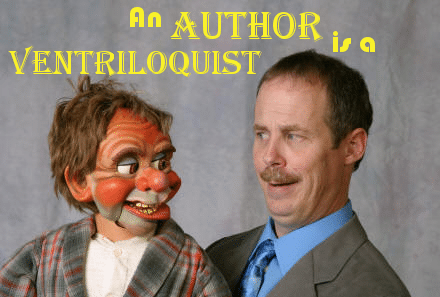‘Never let the audience see your lips move.’
To a ventriloquist, this seems like obvious advice. But to an author, it can be equally valuable. Part of the conceit of a ventriloquist’s act is the belief that the dummy is real. It has a voice of its own, its own mannerisms. Should it not, therefore, have its own opinions, thoughts, and emotions?
Each character should have a back story, however limited. It need only exist in your mind as an author—readers won’t care about every minor character you think up. But if a character has a speaking role, they need to speak with their own voice, not the author’s voice; save that for the narrative.
What slang does a character prefer? Slang gives hints as to upbringing, culture, profession…
How educated is the character? Simple words for simple thinking. Elaborate vocabulary for characters who want people to think they’re educated (whether they actually are or not).
Does this character speak properly? Are they speaking a secondary language, or do they come from a region where languages have blurred together? Do they misuse words (literally, “use to”) or use improper words (irregardless, cromulent).
However you decide to have your characters speak, you at least need to differentiate them from one another. If all your characters talk the same way, they’re going to be harder for readers to tell apart. Worst of all, if you’re having trouble with this, they probably all sound like you. Take the time to consider how to separate each character from one another, and you’ll find that they naturally separate from you as well.


0 Comments